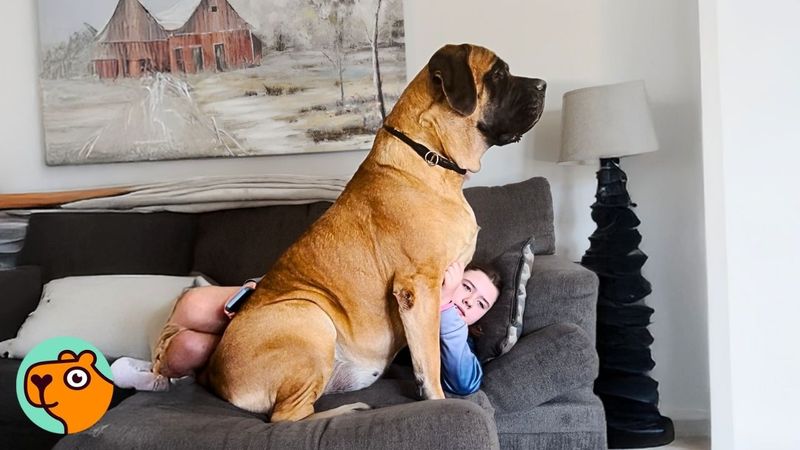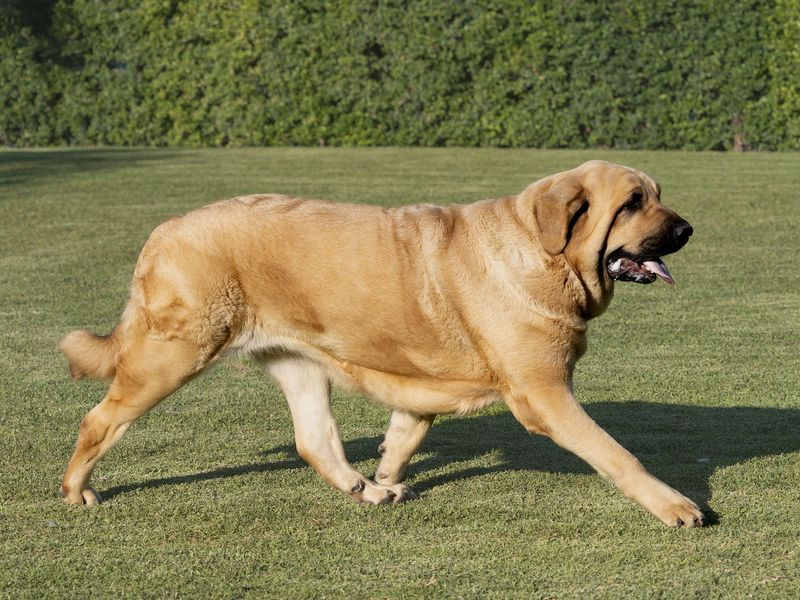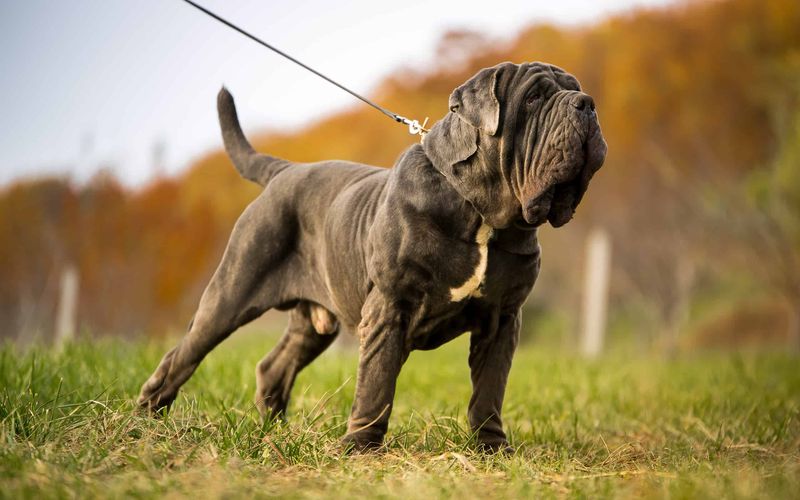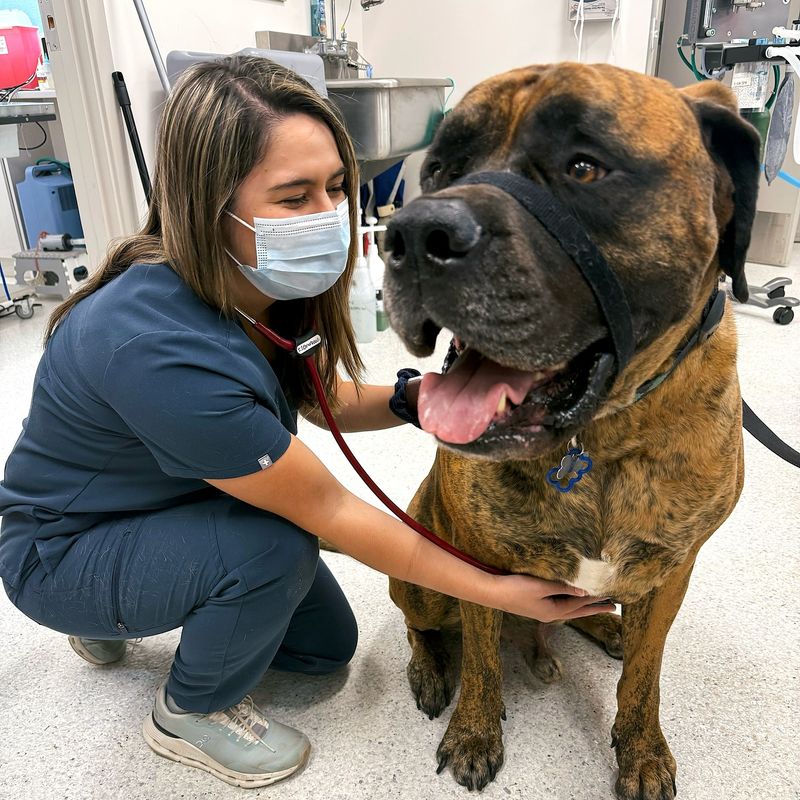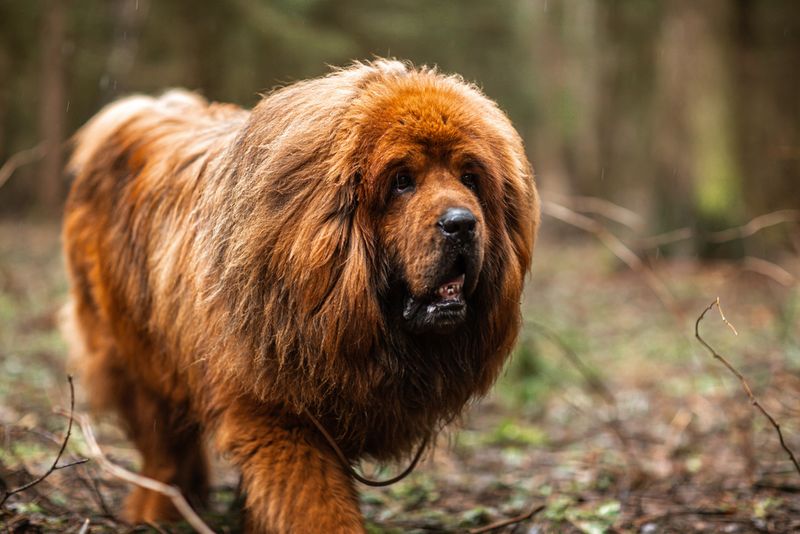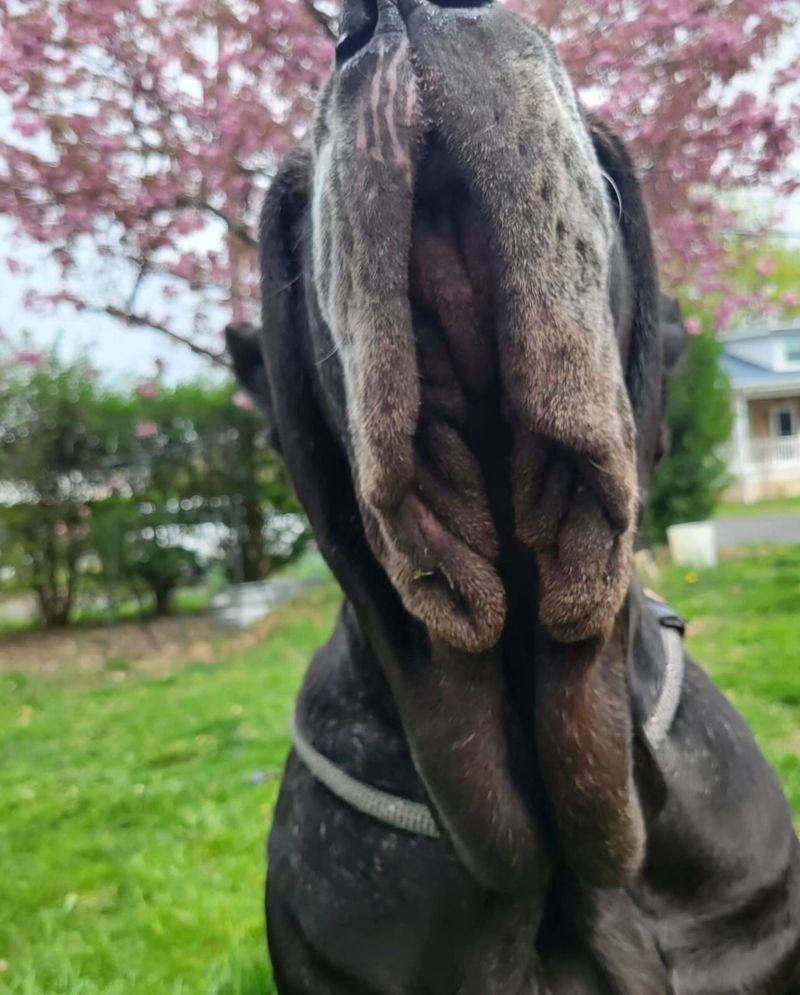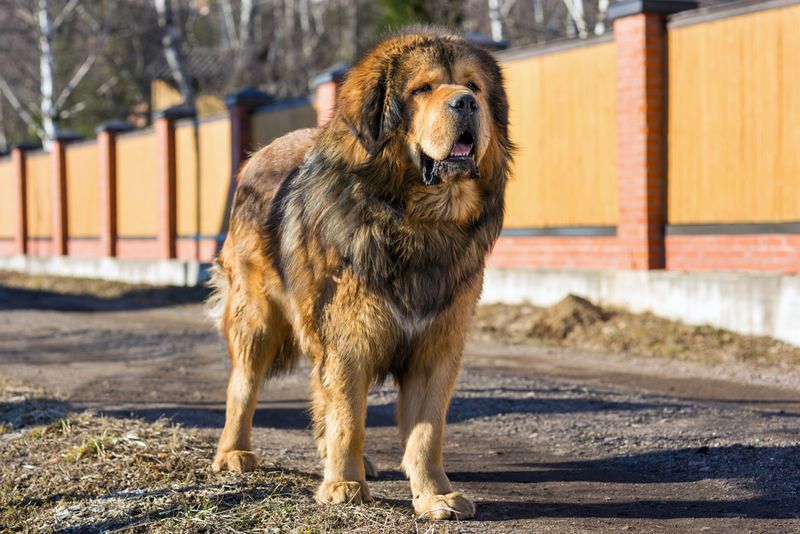Owning a Mastiff can be a rewarding yet challenging experience. These gentle giants come with their own unique set of advantages and disadvantages that prospective owners should carefully consider. Whether it’s their enormous size or their affectionate nature, Mastiffs are sure to leave a lasting impression. Let’s explore 18 pros and cons of welcoming a Mastiff into your life, with each aspect providing a different viewpoint on what makes these dogs both wonderful companions and demanding pets.
Size: Impressive and Intimidating
The sheer size of a Mastiff can be awe-inspiring. With a broad chest and towering frame, they are often viewed as formidable guardians. This size gives them a commanding presence, making them excellent deterrents for potential intruders. However, their intimidating stature can be a double-edged sword, as it may deter friendly visitors as well. When a Mastiff enters a room, all eyes turn towards this giant, often leaving guests wide-eyed with amazement. Their size, while impressive, requires ample space, both indoors and outdoors, for healthy living.
Affectionate Companions
Mastiffs are known for their affectionate nature, often forming strong bonds with their families. Despite their massive size, they are gentle and loving, frequently seeking cuddles and attention from their human companions. This tender-hearted demeanor makes them ideal for families, especially those with children who enjoy the comfort of a giant furry friend. However, their preference for closeness means they may not fare well when left alone for extended periods. With a Mastiff, you’ll always have a loyal companion by your side, ready to provide warmth and friendship.
Protective Instincts
Mastiffs possess strong protective instincts, making them excellent watchdogs. Their natural guarding ability stems from their historic role as protectors of homes and livestock. When they sense danger, their deep bark and imposing size serve as effective deterrents. However, this protective nature requires proper training to ensure they can distinguish between a genuine threat and a harmless situation. While their vigilance offers peace of mind, it also means they need guidance to navigate social interactions. With the right approach, a Mastiff can be both a guardian and a gentle friend.
Exercise Needs: Manageable Yet Essential
Contrary to their size, Mastiffs do not require excessive exercise. A few moderate walks and some playtime each day will suffice to keep them healthy. This makes them suitable for those who may not have the time or energy for highly active dogs. However, regular physical activity is essential to prevent obesity, given their propensity for weight gain. A leisurely stroll in the park can be both a bonding experience and a healthy routine. By striking a balance between exercise and relaxation, Mastiffs can lead a content and active life.
Drooling: A Slobbery Affair
Be prepared for a bit of a slobbery experience with a Mastiff. Known for their drooling, especially after eating or drinking, these dogs can leave wet spots on floors, furniture, and even clothing. While this trait is part of their charm, it may require some adjustment and patience from their owners. Keeping a towel handy can help manage the slobber and keep your home tidy. Despite this wet habit, many owners find their Mastiff’s drool endearing, adding to the unique character of this breed.
Training: Patience Required
Training a Mastiff requires patience and consistency. These intelligent dogs respond well to positive reinforcement, thriving in environments where they are treated with respect and kindness. However, their sometimes stubborn nature can make training a challenge. It’s important to start training early, establishing boundaries and routines that will help your Mastiff grow into a well-behaved adult. With time and dedication, Mastiffs can learn a variety of commands and tricks, making them both obedient and delightful companions.
Health Concerns: Awareness is Key
Mastiffs are prone to certain health issues, including hip dysplasia and heart problems. Regular veterinary check-ups are essential to catch any potential health concerns early. Being informed about their specific needs and providing appropriate care can help mitigate risks. Maintaining a healthy diet and weight is also crucial in supporting their overall well-being. While their health considerations may require extra attention, being proactive ensures that your Mastiff leads a happy and healthy life. Understanding their medical needs is part of responsible ownership.
Grooming: Low Maintenance
Mastiffs have short coats, making them relatively low maintenance when it comes to grooming. Regular brushing helps keep their coat shiny and reduces shedding, which is typically minimal. Bathing can be infrequent, only necessary when they become particularly dirty. Their grooming routine can be a bonding experience, allowing owners to connect with their Mastiff while keeping them looking their best. Although they are not high-maintenance dogs, attention to their grooming needs is still important to ensure a clean and comfortable pet.
Space Requirements: Room to Roam
Owning a Mastiff means having enough space to accommodate their large size. A roomy home with access to a yard provides the ideal environment for them to thrive. Apartments or small living spaces may pose challenges, as these dogs need room to move and stretch. A spacious living area not only supports their physical health but also allows for comfortable interaction with family members. For those with ample space, a Mastiff can be a wonderful addition to the household, offering both companionship and presence.
Barking: The Gentle Giant’s Voice
Though generally quiet, Mastiffs have a deep, resonant bark that can surprise those unfamiliar with the breed. This booming voice serves as an effective alert system, notifying owners of visitors or unusual activity. However, excessive barking can become a concern without proper training and socialization. Encouraging calm behavior and teaching command responses can help manage their vocal tendencies. While their bark is part of their charm, it’s essential to guide them in using their voice appropriately, ensuring harmony within the neighborhood.
Socialization: Early Start Crucial
Socializing a Mastiff from a young age is crucial to developing a well-rounded dog. Introducing them to different people, pets, and environments helps build their confidence and adaptability. Early exposure reduces the likelihood of fear or aggression, ensuring they’re comfortable in various situations. Puppy classes and playdates can provide valuable experiences that shape their social skills. By fostering positive interactions, Mastiffs can grow into friendly, sociable companions, at ease in any setting. Their confidence and friendliness will shine through with the right early guidance.
Life Expectancy: Cherished Time
Mastiffs typically have a shorter lifespan than smaller breeds, often living around 6 to 10 years. Cherishing the time spent with them becomes all the more important, as each moment is precious. Despite their relatively brief lives, Mastiffs make a profound impact, leaving lasting memories and enriching their owners’ lives. Providing a loving home and attentive care can enhance their quality of life, ensuring they enjoy their years to the fullest. Embracing each day with your Mastiff turns ordinary moments into treasured memories.
Cost: Investment in Friendship
Owning a Mastiff can be a financial commitment. From food to medical care, their needs can add up quickly. High-quality food is essential to maintain their health, and due to their size, they consume more than smaller breeds. Regular vet visits and potential health issues also contribute to the cost. While the financial aspect is significant, the companionship and joy they bring are invaluable. Budgeting for their needs ensures that your Mastiff thrives, allowing you to focus on the rewarding aspects of their presence in your life.
Intelligence: Bright Yet Independent
Mastiffs are intelligent dogs, capable of learning quickly when motivated. Their problem-solving skills and ability to understand commands make them a delight to train. However, their independent streak can lead to selective obedience, requiring a firm yet gentle approach. Harnessing their intelligence through engaging activities and mental stimulation helps prevent boredom and encourages positive behavior. Puzzle toys and interactive games offer satisfying challenges for these bright canines, showcasing their cleverness and keeping them entertained. A well-stimulated Mastiff is a happy and well-behaved companion.
Temperament: Calm and Dignified
Mastiffs are known for their calm and dignified temperament. They carry themselves with a serene grace, rarely displaying hyperactivity or excessive excitement. This composed demeanor makes them excellent companions for individuals seeking a tranquil household. Despite their calm nature, they are also playful and affectionate in the right settings. Their gentle approach to life teaches their owners the value of patience and tranquility. A Mastiff’s soothing presence is a balm for the soul, offering peace and contentment to those who spend time with them.
Compatibility with Children
With their patient and gentle nature, Mastiffs are often wonderful companions for children. They seem to possess an innate understanding of young ones, often displaying remarkable tolerance and care. This makes them perfect playmates, ready to join in on games or simply lie by their side. However, teaching children how to interact respectfully with a Mastiff is crucial, ensuring a harmonious relationship. Supervision is always recommended, especially with very young children. When nurtured properly, the bond between a Mastiff and child can be truly heartwarming.
Shedding: A Manageable Task
Mastiffs shed moderately, with more frequent shedding occurring during seasonal changes. Regular brushing helps manage loose hair and keeps their coat healthy. While they are not hypoallergenic, many owners find that with routine care, shedding is quite manageable. Using a vacuum designed for pet hair can make cleaning more efficient, maintaining a tidy environment. Understanding the shedding cycle and keeping up with grooming ensures that fur doesn’t overtake your home. By embracing this aspect of Mastiff care, owners can enjoy their company without being overwhelmed by hair.


